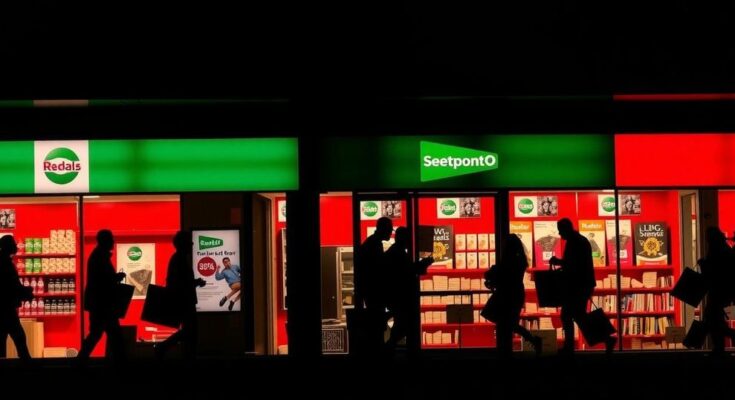Leading retailers in Zimbabwe are at risk of closure due to the government’s enforced official exchange rate, which does not reflect the realities of the currency’s market value. This discrepancy generates inflated prices for consumers and undermines retailers’ ability to compete against informal markets, leading to diminished profit margins. Without timely government intervention and a pricing model that reflects market fluctuations, economic instability may intensify.
Top retailers in Zimbabwe are issuing warnings regarding potential store closures due to challenging official exchange rate policies. This situation arises amid a significant depreciation of the nation’s gold-backed currency, the Zimbabwe Gold (ZiG). Currently, the government mandates that retailers operate with an official exchange rate of 14.8 ZiG to 1 USD, which contrasts sharply with the black market rate where ZiG has depreciated by approximately 80%, trading between 20 to 26 ZiG to 1 USD. Major retail chains such as OK Zimbabwe, Spar, and TM Supermarkets are grappling with inflated prices under the official rate, rendering their offerings more expensive compared to those available through informal retailers who utilize the more favorable black market rates. The adverse conditions have compelled the Retailers Association of Zimbabwe (RAZ) to label the situation as “untenable” unless there is timely intervention from the government. This crisis not only threatens the viability of formal retail operations but also disrupts competitive balance within the market.
The economic environment in Zimbabwe is fraught with instability, notably manifested through recurrent attempts to stabilize its currency. This current crisis marks the sixth endeavor within a 15-year span, underscoring the lack of sustained economic confidence. The Zimbabwe Gold (ZiG) currency tried to emulate stability through a gold-backed system; however, skepticism persists, particularly given its volatility on the black market. Retailers are caught in a predicament, as adhering to government-mandated rates severely undermines their profit margins, making it increasingly difficult to thrive against informal competitors. RAZ’s contention highlights the critical need for a pricing strategy that aligns with real market conditions to foster stability and viability in the retail sector.
The alarming warnings from Zimbabwean retailers illustrate a critical nexus of economic policy and market dynamics. The mandated use of an inflated official exchange rate threatens the survival of formal retail businesses, impairs profitability, and further diminishes investor confidence. As Zimbabwe grapples with ongoing economic challenges, the urgency for effective policy reforms becomes apparent. The upcoming government actions will be pivotal in determining the future stability of the retail sector and the broader economy, making it imperative for both stakeholders and investors to remain vigilant regarding developments related to currency valuation.
Original Source: finimize.com




